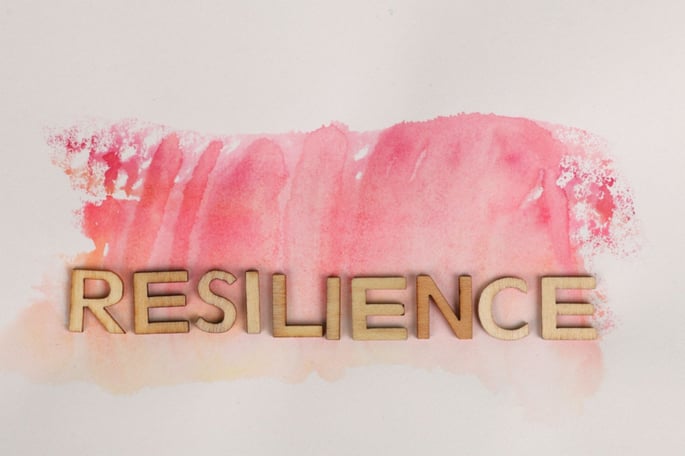5 research-backed tips to actually make your new year's resolutions stick.
4-minute read

January 1st: Drunk with optimism.
February 1st: Slapped by reality.
How can we avoid the all-too-human tendency to set unrealistic New Year’s resolutions, get depressed as we regress to our mean, and return to the same-old unproductive habits that keep us from living the life we want to live?
Here are 5 research-driven and counter intuitive tips to help you set the right commitments in the new year
1. Create an if-then plan.
We often think that the key issue with achieving our resolutions has to do with motivation. If we only watch Creed enough times, then this year will be the year! But the science tells a different story. When it comes to reaching our goals, the secret lies in the planning more than in the feeling. Individuals, for example, who write down when and where they are going to exercise are 3X as likely to follow through on their commitments than folks who only learn about the benefit of exercise. Writing down the basic conditions for your behavior ensures clear triggers that automate and habituate action. Doing this is also a great way to plan for the days in which you fail to achieve your goals (see tip #2).
Action: For the new year goal(s) you select, plug in the following: If ____, then ____
For example:
- If it’s 9:30 PM, then I will study Mandarin for at least 25 minutes.
- If I’m 80% full, then I will stop eating my meal.
- If I flush the toilet, then I will do 10 pushups.
Bonus: Want to taking your planning skills to the next level? Try the WOOP method.
2. Do a pre-mortem.
During New Year planning, most of us make two major mistakes: we select overly ambitious goals, and we fail to consider why our resolution may die an ugly death. Psychologist call this the optimism bias: the tendency to think you are less likely to suffer setbacks and more likely to achieve success than others. That is why most of us feel that, unlike all those other weak-willed suckers, we are more likely to keep our resolutions. But alas, if most people feel this way, and only 20% of folks actually keep their resolutions, we have a problem.
Action: To counter your tendency to be overly optimistic, do a pre-mortem: before launching your New Year’s initiative, imagine that it failed (yes, think negatively!). Write a one-paragraph history of the failure, and make adjustments to your plan accordingly. You can also create additional if-then rules to help deal with setbacks.
For example:
- If I miss my weekly goals, then I will donate $50 to a charity I dislike.
- If I eat a sugary snack, then I will run an extra 10 minutes on the treadmill.
- If I do not play the piano in the evening, then I will wake up an hour early and practice.
3. Zip it.
Stop telling people what you plan on accomplishing. The internet is a terrible accountability partner. Studies show that the more people you tell about your goals, the less likely you are to put in the effort to achieve them. All those virtual adulations reduce incentives to actually do the hard work.
Action: Keep your resolutions to yourself. If you need someone to hold you accountable, ask a specific individual, use an anti-charity website like SticKK or Beeminder, or check out these 6 accountability apps that will improve your success.
4. Be kind to your future self.
Research shows that when asked to think about their future selves, people’s brains function as if they are thinking of strangers. This helps explain why we have such a hard time with goals that require long-term investment (from health, to finance, to the environment). One proven way to create a connection between your present and future self is to visualize what you might look like as an older person. To that end, check out an app called AgingBooth.

Action: Print out your picture and get in the habit of regularly asking: “How can I be kind to this individual?” Bonus: write a letter to your future self 20 years from now. Let them know how your New Year’s resolutions had them in mind.
5. Stop looking within.
Let’s face it, New Year’s resolutions can be narcissism dressed up as self-improvement. In 2017, the top three resolutions in the U.S. were: making more money, getting in shape, and having more sex. How many of your resolutions involve caring for people? This year, do something different and add at least one resolution that involves improving someone else’s life. Be as determined and focused as you would be to change a bad habit or to go to the gym 3 times a week. Research shows that focusing on others is a great way of increasing your own happiness.
Action: Schedule time for empathy, aka POOP time (“perspective on other people”). Carve out time on your calendar that is solely dedicated to the needs of your family, friends, co-workers, or strangers. Even five minutes a day can be of value. Think of creative ways to help others. This includes sharing knowledge, social capital, or just giving someone your undivided attention.
So, these are my top five tips for making and keeping your New Year’s resolutions. Now you just have to pick one and commit.


